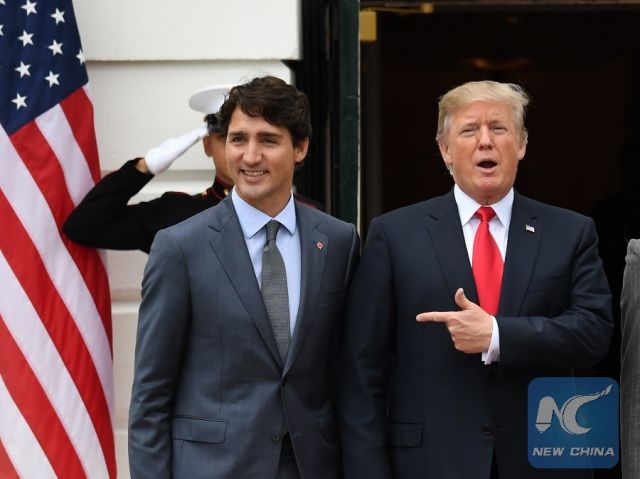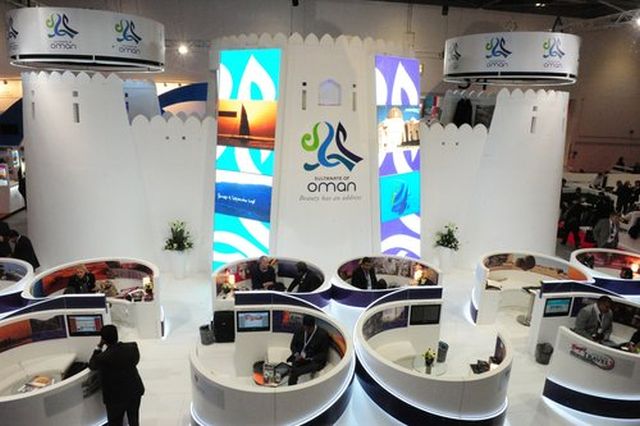
by Editor | May 25, 2021 | World
 By Vishal Gulati,
By Vishal Gulati,
Mainz (Germany) : The success of an energy policy depends on it being owned locally and decentralised, a top policymaker has said, adding: “Many economically underdeveloped regions in Germany are now earning money by tapping energy from renewables.”
The success lies in supporting citizen energy cooperatives, he said.
“The core idea of our energy policy is a locally owned and decentralised energy transition, based on citizen engagement,” said Thomas Griese, Secretary in the Rhineland-Palatinate State Ministry for Energy and Environment.
In an interaction with IANS here, he said by earning money through energy production, formerly economically underdeveloped regions now have the possibility to invest in their infrastructure.
Rhineland-Palatinate, a predominantly rural federal state in southern Germany but a leading one in terms of the use of wind power relative to its potential and also tapping solar for heating, has been a frontrunner in supporting citizen energy cooperatives.
“Supporting cooperatives by the state is an important factor in many communities,” said Griese, who belongs to the Green Party.
Forty-two citizen energy cooperatives are federated and the Ministry of Environment and Energy supports them financially.
“We also support the transition of the energy system by funding local heat networks. To this day we have funded nine local heat networks with an investment of about 12.3 million Euros,” said an optimistic Griese, who has been in office since 2011.
After a first phase of energy transition from fossils to renewable energy, he said “it’s necessary and important that we integrate them into our energy supply system. This should be as cost-effective and efficient as possible.”
According to Griese, energy transition also has to reach the heat sector.
“We can only reduce our dependence on energy imports and climate-damaging emissions if we reduce the heat requirement in our buildings and if we use more renewable energy for heating.”
Forty-eight per cent of the power production in Rhineland-Palatinate is based on renewable energy, mainly wind power, which is significantly above German’s average of 33 per cent as per 2017 government statistics.
It was highly dependent on fossil fuels, mainly mineral oil and natural gas, which accounted for 41 percent and 38 percent of the state’s primary energy consumption in 2015.
“We have succeeded in becoming largely independent from power imports. Seventy per cent of the power we consumed is produced in the state itself. Only a few years ago this situation was reverse.”
“Through the development of renewable energy, more than 10,000 new jobs have been generated.”
On stepping up action for expanding renewable sources, he said: “I expect from the new (federal) government more courage and political commitment to regain global leadership not only to achieve the climate targets but also to gain back a leading position in technology.”
The Rhineland-Palatinate Energy Agency, a state-owned service provider, has been supporting municipalities, public institutions, businesses and citizens in their energy transition and climate protection efforts since 2012.
While the new federal coalition government has just targetted the generation of 65 per cent of the electricity from renewable sources by 2030, Rhineland-Palatinate wants this figure to reach 100 per cent by 2030.
(Vishal Gulati is in Germany for a media study tour of the Clean Energy Wire or CLEW. He can be contacted at vishal.g@ians.in )
—IANS

by Editor | May 25, 2021 | World
 Washington : US President Donald Trump on Tuesday spoke with leaders of France and Germany on the expulsion of Russian diplomats.
Washington : US President Donald Trump on Tuesday spoke with leaders of France and Germany on the expulsion of Russian diplomats.
Earlier on Monday, he also spoke with Canadian Prime Minister Justin Trudeau to coordinate stances on the issue.
The White House said Trump spoke with French President Emmanuel Macron and German Chancellor Angela Merkel earlier on Tuesday, Xinhua reported.
The three nations on Monday announced to expel Russian diplomats over the poisoning attack of former Russian double agent Skripal and his daughter in Britain’s southwestern city of Salisbury on March 4.
In his call with Macron, Trump and the French top leader expressed support for the West’s “strong response” to the Russia-related incident, including the expulsion of a large number of Russian intelligence officers on both sides of the Atlantic.
In the call, Trump also stressed the need to intensify cooperation with Turkey with respect to shared strategic challenges in Syria.
In a separate call with Merkel, Trump reaffirmed with her the cooperative relationship between the two countries.
Both leaders praised the joint announcements from North Atlantic Treaty Organization Allies, EU member states and other countries to expel “undeclared Russian intelligence officers” in solidarity with Britain and in response to Russia’s alleged use of chemical weapons, said the White House.
Russia has denied any involvement in the poisoning of Sergei Skripal and his daughter Yulia.
Earlier on Monday, Trump spoke with Trudeau to affirm the solidarity of both countries with the UK and discuss the joint expulsions of Russian intelligence officers in response to Russia’s alleged use of a military-grade chemical weapon on the United Kingdom’s soil.
The White House said in a separate statement that Russia’s behavior “is the latest in its ongoing pattern of destabilizing activities around the world.”
On Monday, at least 137 Russian diplomats were ordered out by 24 governments, including 60 Russians from the US.
William Courtney, adjunct senior fellow of RAND Corporation, said that West-Russia relations will become more strained, but the West is willing to run this risk.
In his protest, Russia Ambassador to the US Anatoly Antonov said that Moscow will give adequate response with regard to each case in the coming days.
The Russian Foreign Ministry also said later that the West’s expulsion of its diplomats is an unfriendly step, and vowed to react accordingly.
—IANS

by Editor | May 25, 2021 | World

Angela Merkel
Berlin : German Chancellor Angela Merkel has rebuffed comments by her interior minister who said that Islam did not belong to Germany.
Speaking at a joint news conference with visiting Swedish Premier Stefan Lofven on Friday, Merkel said Islam was part of the country’s culture and history like Christianity and also Judaism, Xinhua news agency reported.
“Four million Muslims live in Germany, and they are practicing their religion here. They belong to Germany, and also their religion of Islam belongs to Germany,” she said.
Merkel’s words came after Horst Seehofer, the new interior minister of Germany, told German daily Das Bild on Friday that Islam does not belong to Germany, stressing the country’s traditions and cultures.
Germany on Wednesday finally established a new government with a coalition between the Social Democrats and the Merkel-led Conservatives Union, which was comprised of the Christian Democratic Union (CDU) and its Bavarian sister party Christian Social Union (CSU) that Seehofer comes from.
The CSU is more conservative than CDU.
The increase of the number of Muslims in Germany triggered Islamophobia and the rise of anti-migration populist party Alternative fuer Deutschland (AfD).
—IANS

by Editor | May 25, 2021 | World
 By Mesut Zeyrek,
By Mesut Zeyrek,
Cologne: In another example of terrorist group violence and pressure on Turkish Muslims abroad, a PYD/PKK-affiliated webpage has posted video footage of an attack early Friday on a mosque in southwestern Germany.
The Aksemsettin Mosque — belonging to the Muslim-Turkish association Islamic Community National View (IGMG) — in the town of Lauffen am Neckar was attacked at 02.00 a.m. (0100GMT) Friday.
Video footage of the attack was posted on the PKK-affiliated webpage Roja Civan, showing four people attacking the windows and doors of the mosque with Molotov cocktails while another attacker is breaking the windows with rocks.
The attackers later flee the scene.
Other PKK-propaganda posts were also found on the webpage, which says, “As long as the attack on Afrin continues, the resistance will grow daily,” referring to the current Turkish-led counter-terrorism campaign in northwestern Syria.
Numerous mosques have been attacked by PYD/PKK supporters in several German cities since Jan. 20, when Operation Olive Branch began.
The PKK has been banned in Germany since 1993, but it remains active, with nearly 14,000 followers among the country’s Kurdish immigrant population.
Turkey has long criticized Germany for not taking serious measures against the PKK, which uses the country as a platform for their fund-raising, recruitment, and propaganda activities.
Germany has a three million-strong Turkish community, many of whom are second- and third-generation German-born citizens of Turkish descent whose grandparents moved to the country during the 1960s.
According to the Turkish General Staff, Operation Olive Branch aims to establish security and stability along Turkey’s borders and the region as well as protect Syrians from the oppression and cruelty of terrorists.
The operation is being carried out under the framework of Turkey’s rights based on international law, UN Security Council resolutions, its self-defense rights under the UN charter, and respect for Syria’s territorial integrity, it said.
The military also said only terror targets are being destroyed and “utmost care” is being taken to not harm civilians.
—AA

by Editor | May 25, 2021 | Business Summit, Events, Investing, Muslim World
 Muscat : The Sultanate of Oman is taking part in the World’s Leading Travel Trade Show (ITB 2018), which will take place in the German capital Berlin on March 7-11.
Muscat : The Sultanate of Oman is taking part in the World’s Leading Travel Trade Show (ITB 2018), which will take place in the German capital Berlin on March 7-11.
Member of the Board of Directors at Oman Tourism Development Company (SAOC) Ahmed Nasser Al Mahrizi will head the Sultanate’s delegation comprising officials of the Ministry of Tourism and representatives of Tourist organizations.
According to MUSCATDAILY.COM, Oman has always been keen to participate in ITB Berlin which has developed into a unique global success story since its beginning in 1966. ITB Berlin, which is one of the most prestigious tourist events in the world, is an ideal opportunity for Oman to showcase its tourism products and services and to promote the Arab Gulf state as a perfect all-year destination.
The exhibition had previously witnessed the participation of 10,000 organizations such as airlines, privet tourism organizations and much more representing 185 countries, as well as 170,000 visitors.
Oman’s participation this year coincides with the opening of the new Muscat International Airport on March 20 and the facilitations granted by the e-Visa system, to be made available by March 21.
Oman has recorded a significant growth in the tourism industry, thanks to the country’s efforts in the tourism development in various aspects including service projects and promoting tourism investment. The number of international tourist arrivals grew by 4.7 percent to reach 3.300 million in 2017, compared to 3.151 million in 2016. The number of hotel establishments rose from 337 in 2016 to reach 367 in 2017 with an increase of 8.9 percent, and an annual growth rate of 6.4 percent since 2009.
—AB/UNA-OIC





